Sam Thorley from FFKR’s Landscape and Planning Studio facilitated the Design Incubator group through the event’s third installment. He introduced the concept that designing and defining outdoor spaces “parks” has always been a part of our civilization. Most often, parks are better defined and categorized by their context. For example, woodland parks, neighborhood parks, pocket parks, and national parks are all readily understood by its contextual name.
In looking specifically at urban parks, the context is urban areas, precisely city centers, and densely inhabited spaces. These parks have traditionally been spaces explicitly set aside and narrowly defined as grass areas with trees and benches, like Central Park or locally, Pioneer Park in Salt Lake City, Utah. There are value and merit to these urban parks, but the parks that have challenged the notion of what is a park or have reimagined where to locate a park within the city context have been most successful and more intriguing.
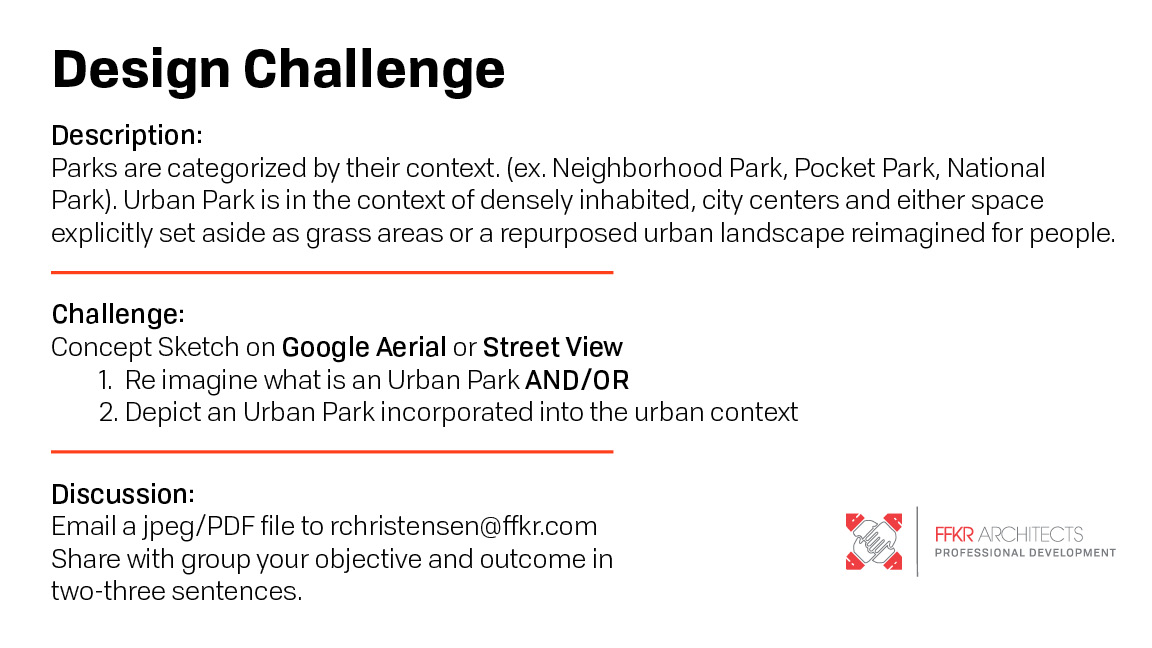
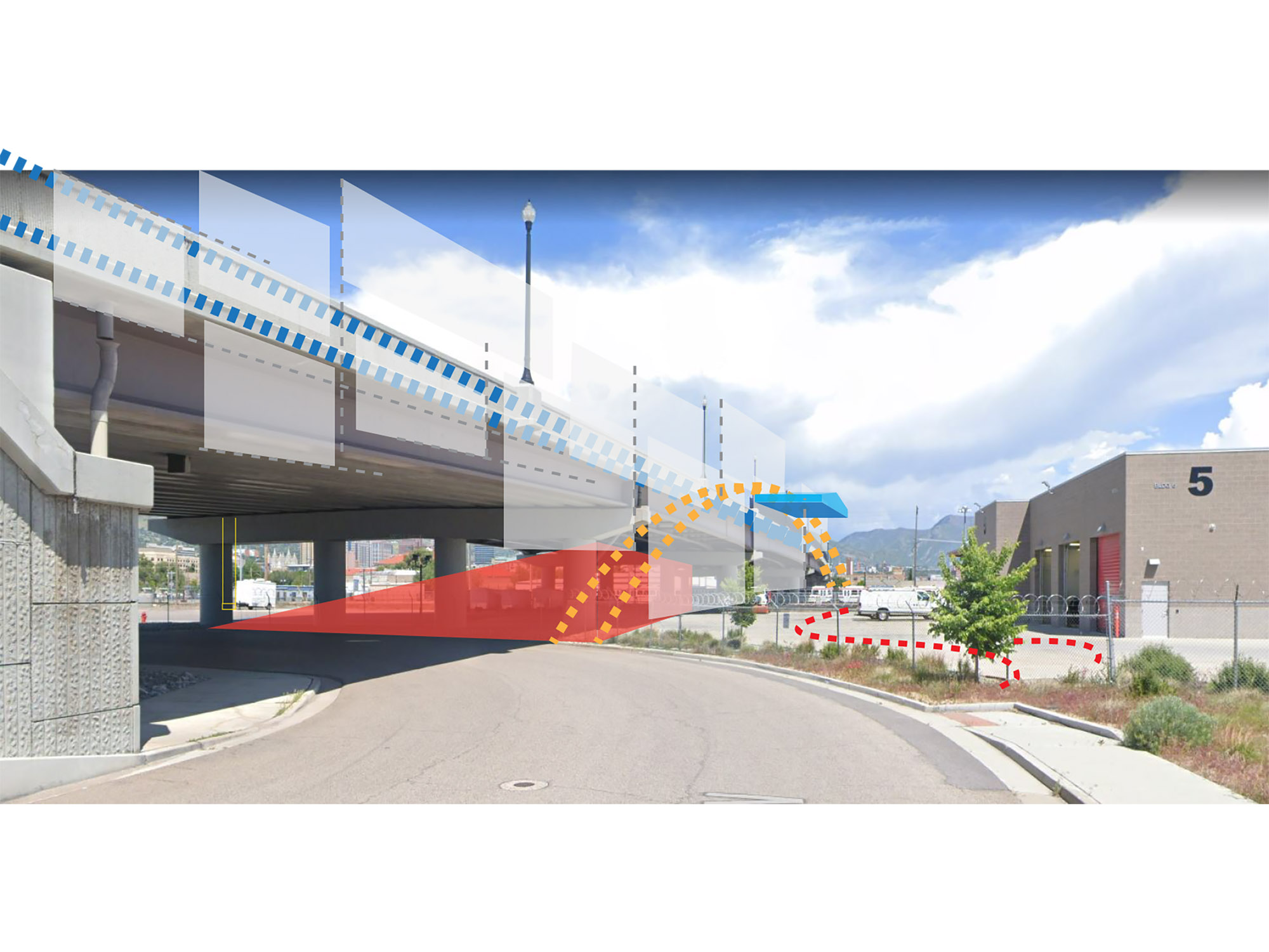
“Neighborhood Park. Harmony Noisy.” — Wanwei
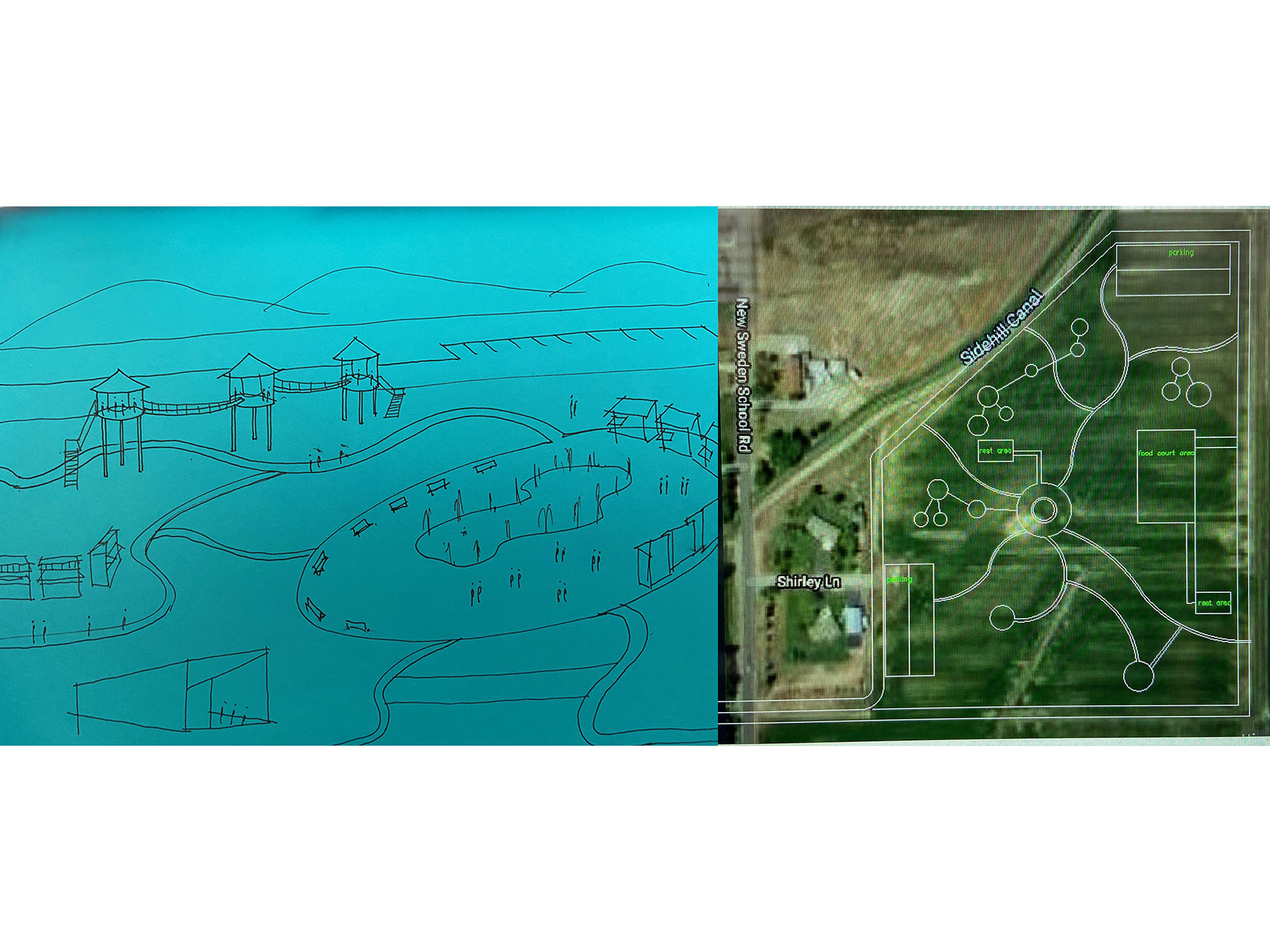
“In these times where the world realized how fragile we are as a species because of the “Covid 19″, we must create spaces where we have more interaction with nature, wooden structures linked by hanging bridges and pedestrian paths for walking and running integrated with water and trees, architects and designers need to come back where should be. Integrate nature.” — Gabe
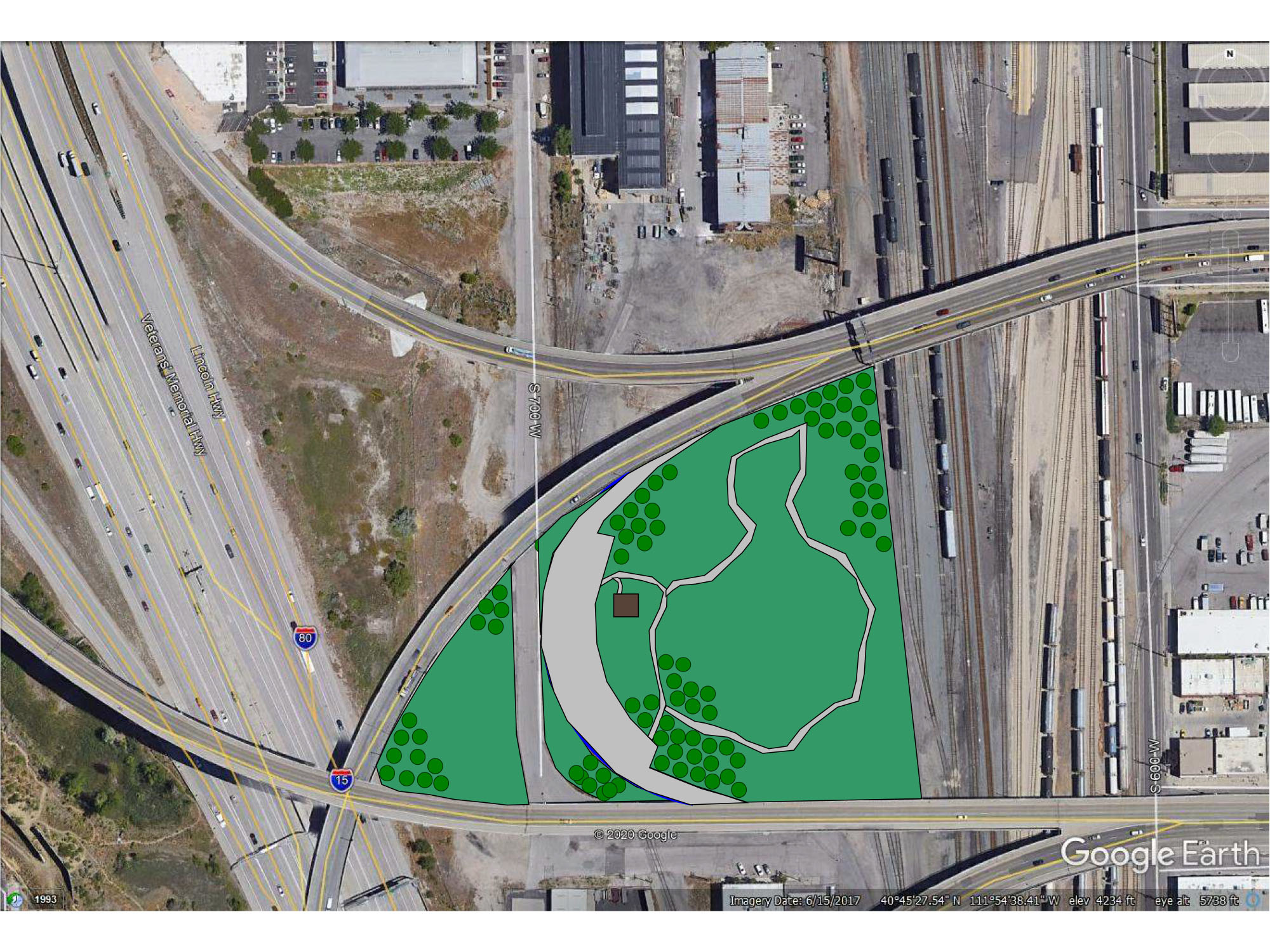
“An Urban Park should exemplify nature as a counterpoint to the rigid and harsh nature of the typical urban environment. It should be a place where people can readily go to escape and re-energize. Ready access is a must but it should be placed strategically to surprise the visual sense of sameness that affects the urban environment.” — Trent
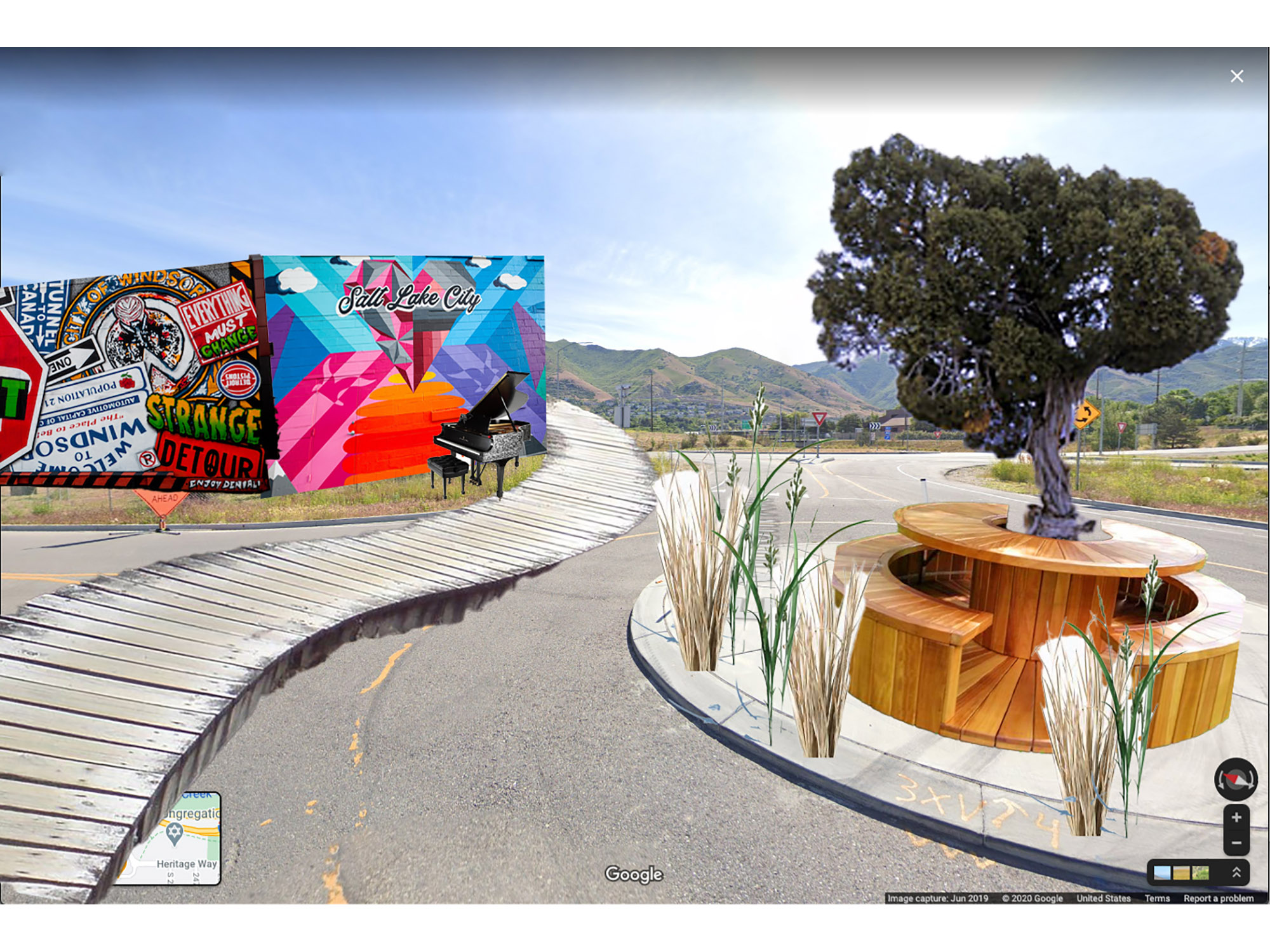
“Transforming an automobile focused roundabout into a creative, culture hub with improved pedestrian experience with manmade and nature mixing in disarray.” —Roxy
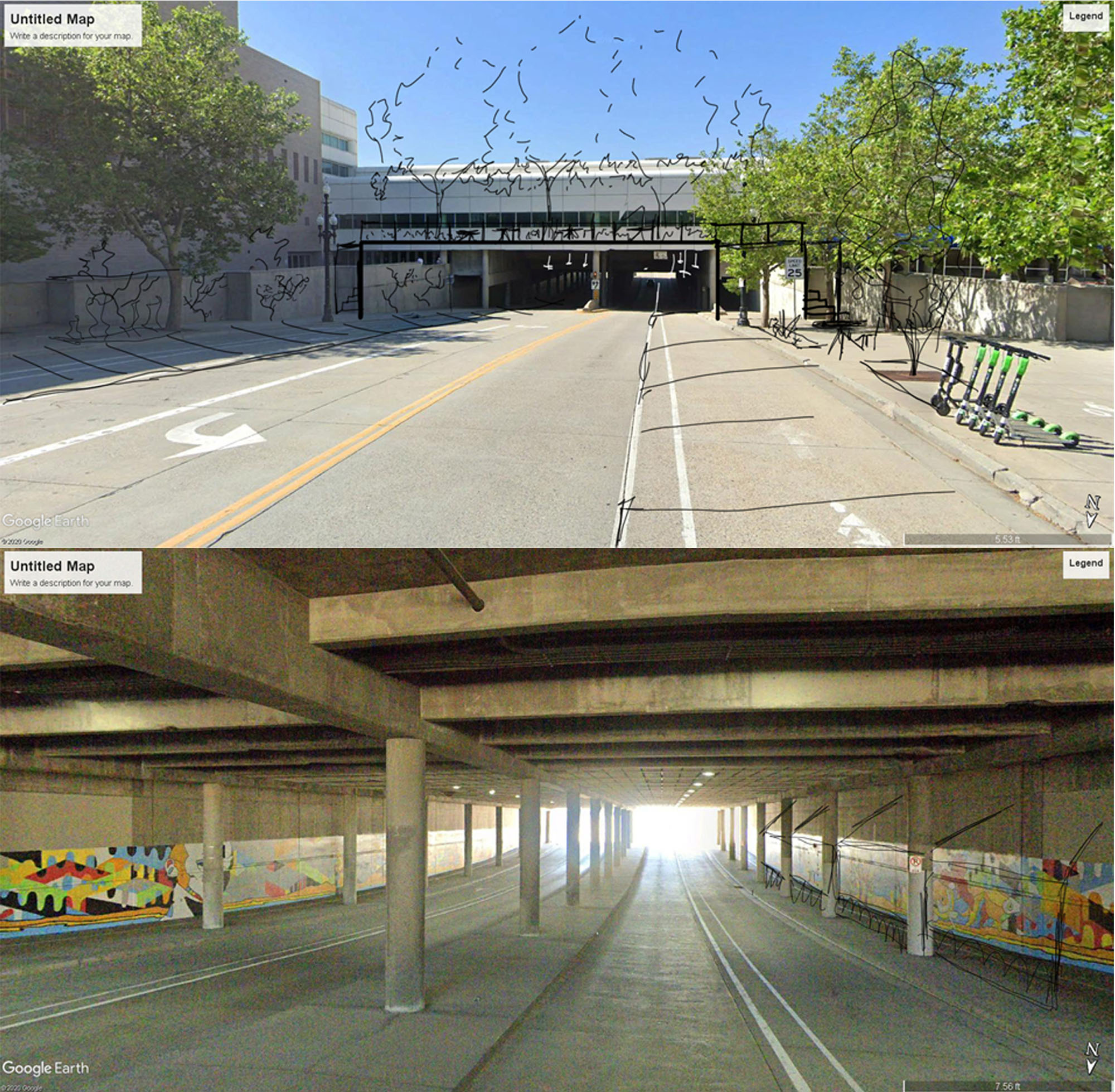
“I have gone under this building many times and felt like it was a wasted space and could be activated and then become an extension of the conference center.” — Sam
Design Incubator is a monthly creative event, sponsored by FFKR’s Professional Development Committee, meant to spark creativity with a unique challenge every month and provide a forum for discussion and collaboration. Each event the group is presented a “design challenge” and then break out into 20 minute work sessions to think, draw, and conceptualize their ‘solution.’ The group comes back together to share their creations and describe their thought process with open questions and comments from others.